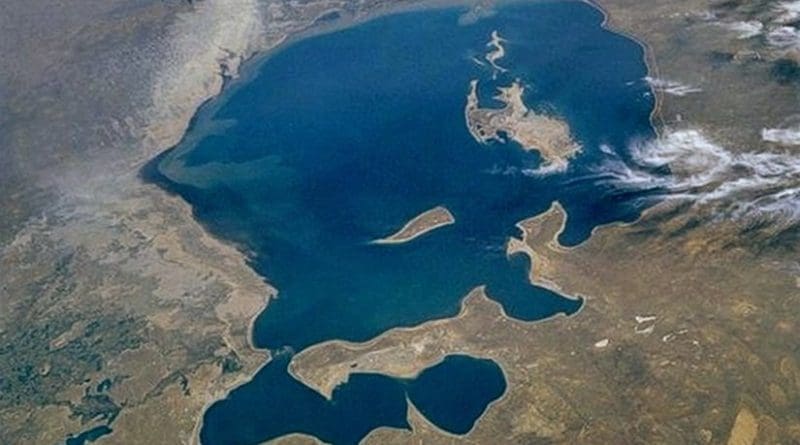With Aral’s Death Irreversible, Central Asian Leaders Shift Focus To Setting Market Price For Water – OpEd
By Paul Goble
For most of the past 25 years, the issue of saving the Aral Sea has dominated all discussions of water sharing and use in Central Asia. But now that the death of that sea has become irreversible, the leaders of that region are increasingly focusing on putting a market price on water so as to be able to share this resource without the conflicts of the past.
For both ideological reasons – Marxism-Leninism was opposed on the basis of the labor theory of value to putting a price on unprocessed natural resources – and practical ones – Moscow’s ability to play off the water surplus and water short republics in Central Asia was a foundation of Soviet power in that region.
But with the collapse of the USSR and the emergence of five new countries in the region, conflicts over water intensified with the water surplus countries of Kyrgyzstan and Tajikistan at odds with the water-short countries of Kazakhstan, Turkmenistan and Uzbekistan in the absence of the arbitrating role that Moscow had played in the past.
These conflicts have intensified over this period as a result of growing shortages of water even in the water-surplus countries, growing water requirements for economic activity and population needs in the water-short countries, and the interest of outside third parties, first and foremost China, in gaining access to this resource.
However, these tensions were often subsumed under discussions about how to “save the Aral Sea,” a body of water that has lost more than 90 percent of its surface area and more than 97 percent of its volume in recent decades. Indeed, talk about water in Central Asia still takes place under this rubric.
Last week, the five presidents met in Turkmenbashi under the auspices of the International Foundation for Saving the Aral Sea. But as regional expert Zamir Karazhanov notes, this time the leaders talked less about saving the Aral than about how to share water (ritmeurasia.org/news–2018-09-02–voda-v-centralnoj-azii-priobretaet-rynochnuju-cennost-38312).
Kazakhstan President Nursultan Nazarbayev renewed his 2003 proposal for the creation of an international water-energy consortium in Central Asia, an idea that attracted lots of interest 15 years ago but little action. And Tajikistan President Emomali Rahmon called for setting a market price on water so it could be divided up on the basis of supply and demand.
The water-energy consortium could become the place where prices would be set, but it is far from clear, Karazhanov says, whether the upstream countries, Kyrgyzstan and Tajikistan, would be willing to cede their sovereign power to the downstream ones which are overwhelmingly dependent on water from the two.
Turkmenistan currently gets more than 90 percent of its water from flows that originate beyond its borders; Uzbekistan, 77 percent; and Kazakhstan, more than 40 percent, the Central Asian commentator says. They will have an interest in low prices while Kyrgyzstan and Tajikistan will want them as high as possible.
No specific decisions were taken at Turkmenbashi, Karazhanov says; but “the main thing is that the meeting took place.” There hadn’t been on at the presidential level on water issues since 2009; and there had never been one since 1991 where the main issue wasn’t “saving the Aral” but figuring out ways to share water, almost certainly by setting some price on it.

